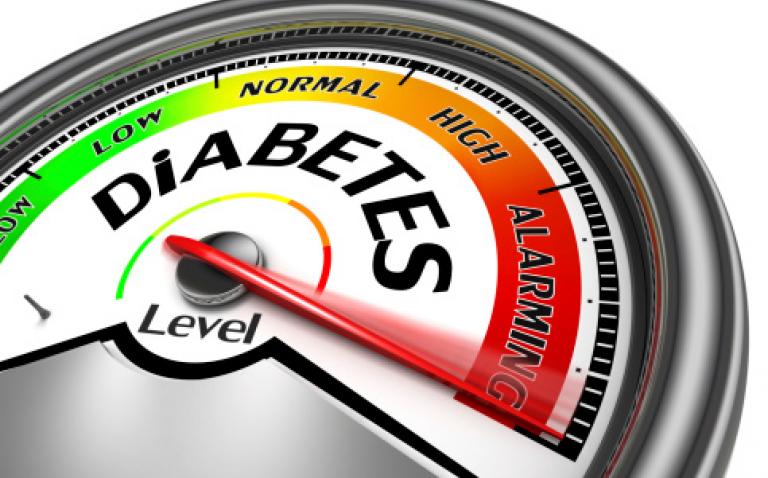New data presented today at the 51st annual meeting of the European Association for the Study of Diabetes (EASD) show that patients with type 2 diabetes receiving the U200 formulation of Tresiba® (insulin degludec) experienced significantly lower rates of confirmed hypoglycaemia and significantly reduced mean fasting blood glucose compared to those receiving insulin glargine U100.1 Tresiba® U200 is twice as concentrated as U100, allowing patients to inject up to 160 units in a single injection, rather than in two separate injections.
“These findings provide valuable insights to physicians treating patients with type 2 diabetes, many of whom require higher doses of insulin,” commented Dr Mark Warren, lead study investigator. “The more concentrated formulation of Tresiba® also means fewer injections, which will be a welcome option for those patients who require higher than 80 units.”
The 32-week, open-label, crossover, treat-to-target trial compared the safety, efficacy and patient-reported outcomes of Tresiba® U200 to insulin glargine U100 in patients who might benefit from a low-volume basal insulin. In the study, patients with type 2 diabetes also reported higher satisfaction with Tresiba® U200, highlighting an overall preference versus insulin glargine U100. Patients receiving the more concentrated formulation of Tresiba® also reported numerically lower cases of nocturnal hypoglycaemia (p=not significant [ns]) and lower weight change (p=ns) and rated the delivery device FlexTouch® significantly better for function compared to the insulin glargine U100 device.1
Dr Simon Heller, Professor of Clinical Diabetes at Sheffield University, commented: “These new data show that Tresiba® U200 significantly lowers both rates of hypoglycaemia and mean fasting blood glucose compared to insulin glargine U100. Interestingly, data for patient-reported outcomes also tell us that the delivery device function, as well as the prospect of fewer injections, are factors that matter to patients.”
“Patient choice forms a key element in the successful uptake of any diabetes treatment and the data for patient-reported outcomes reinforce the idea that individual preferences should be carefully considered, alongside efficacy, when selecting a treatment regimen.”
After 16 weeks, the study demonstrated:
- Tresiba® U200 delivered non-inferiority to insulin glargine U100 with respect to change in patient blood glucose levels
- Significantly reduced mean fasting plasma glucose with Tresiba® U200 versus insulin glargine U100 (-0.82 mmol/l versus -0.05 mmol/l, p<0.05)
- Significantly lower confirmed hypoglycaemia rate with Tresiba® U200 versus insulin glargine U100 (estimated rate ratio [ERR]; 0.59, p<0.05)
- Tresiba® U200 delivered numerically lower nocturnal hypoglycaemia rate versus insulin glargine U100 (ERR; 0.66, p=ns)
- Lower mean weight change with Tresiba® U200 versus insulin glargine U100 (0.42kg versus 1.04kg, p=ns)
- Tresiba® U200’s delivery device was rated significantly better for function (estimated treatment difference [ETD]: 8.40, p<0.05) and less bother (ETD: 6.01, p<0.05) compared to that of insulin glargine U100
In addition, similar adverse event (246 versus 260) and serious adverse event (9 versus 12, p=ns) rates per 100 patient-years of exposure were observed in the Tresiba® U200 arm versus insulin glargine U100. Only one patient withdrew due to an adverse event (insulin glargine U100).1
References:
- Warren M et al. Efficacy, patient reported outcomes and safety of insulin degludec U200 compared with insulin glargine in patients with type 2 diabetes (T2D) requiring high-dose insulin. Presented at the 51st annual meeting of the European Association for the Study of Diabetes (EASD); Stockholm, Sweden, 14-18 September 2015.
- Tresiba® Summary of Product Characteristics. Bagsværd, Denmark, Novo Nordisk A/S; June 2015.
- Haahr H, Heise T. A review of the pharmacological properties of insulin degludec and their clinical relevance. Clin Pharmacokinet 2014;53:787–800.
- Meneghini L et al. The efficacy and safety of insulin degludec given in variable once-daily dosing intervals compared with insulin glargine and insulin degludec dosed at the same time daily. Diabetes Care 2013;36:858–64.
- Mathieu C et al. Efficacy and safety of insulin degludec in a flexible dosing regimen vs insulin glargine in patients with type 1 diabetes (BEGIN: Flex T1): a 26-week randomized, treat-to-target trial with a 26-week extension. J Clin Endocrinol Metab 2013;98:1154–62.










